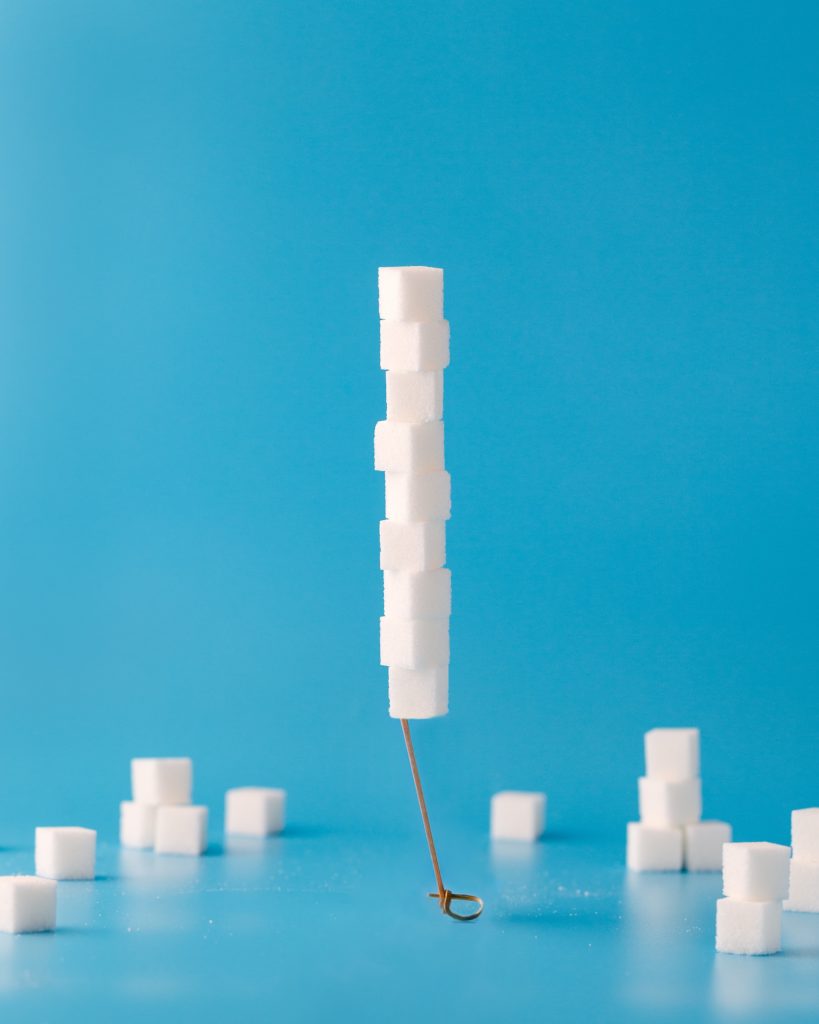Every time I set my alarm, my eyelids get heavy. Why? There’s a scientific explanation, and once you learn it, you can use it to your advantage to fall asleep faster.
Do you get enough sleep? If you’re reading this article, probably not. Medications have side effects, melatonin products are hit-or-miss, and many of us have chaotic lives that make it challenging to practice perfect sleep habits.
So if we want better sleep, what’s left to aid us in the battle against insomnia?
Clients come to me because they want simple, effective solutions to their problems — including insomnia. So how do I deal with insomnia, whether in my own life or my clients’ lives? By leveraging the power of classical conditioning. But first, let’s explore how poor sleep can lead to an early grave and the current expert recommendations for better sleep.
•••
How Poor Sleep Affects Your Health
According to sleep data from the CDC, adults who got less than 7 hours of sleep were more likely to report 10 chronic health conditions compared to people who got the recommended 7–9 hours of sleep, including heart attack, coronary heart disease, stroke, asthma, COPD, arthritis, depression, and diabetes. They were also more likely to report being obese.
But how does poor sleep lead to so many health issues? Basically, we accrue a sleep debt that slowly deteriorates our systems.
According to a Harvard article,
“If sleep were a credit card company, many of us would be in deep trouble.”
“More than 60% of women regularly fall short [of 7–9 hours of sleep]. Although each hour of lost slumber goes into the health debit column, we don’t get any monthly reminders that we’ve fallen in arrears.”
“In fact, the greater the sleep debt, the less capable we are of recognizing it: Once sleep deprivation — with its fuzzy-headedness, irritability, and fatigue — has us in its sway, we can hardly recall what it’s like to be fully rested. And as the sleep debt mounts, the health consequences increase.”
Most people have accepted being chronically tired as part of adulthood. We blame it on the grind — working 40+ hours a week, raising kids, doing chores, preserving a semblance of a social life, etc. So how do we keep going, going, going — like some knock-off version of the Energizer Bunny?
Stimulants.
A quad-shot espresso macchiato with cinnamon cold-foam here, a 5-hour energy shot there, a bottle of caffeinated water (yes, it’s a thing) to stay hydrated, energy gum jam-packed with every new-age herb purported to boost energy levels, and whatever else we can shovel into our body to keep going. We become a withered husk — a caffeinated zombie, mindlessly shuffling from one task to another.
But living like the undead is a quick way to an early grave.
More from the Harvard article:
In a landmark study of human sleep deprivation, University of Chicago researchers followed a group of student volunteers who slept only four hours nightly for six consecutive days. The volunteers developed higher blood pressure and higher levels of the stress hormone cortisol, and they produced only half the usual number of antibodies to a flu vaccine. The sleep-deprived students also showed signs of insulin resistance — a condition that is the precursor of type 2 diabetes and metabolic slowdown. All the changes were reversed when the students made up the hours of sleep they had lost. The Chicago research helps to explain why chronic sleep debt raises the risk of obesity, heart disease, stroke, and diabetes.
Sleep loss takes its toll on us mentally and physically.
So what do experts recommend we do to improve our sleep?
•••
Current Expert Recommendations for Better Sleep
Sleep experts have developed some “best practices” when it comes to good sleep hygiene. Most of these tips revolve around aligning our bedtime habits with our circadian rhythms so we can take advantage of the more instinctual parts of our brain.
In a nutshell, this means:
- Be consistent. Our brains like to be able to anticipate what’s going to happen next. If you don’t have a consistent bedtime, your brain has no idea when it should start preparing for sleep.
- Darkness = lie down. Humans are diurnal — the opposite of nocturnal. This means that we’re not designed to function well in the dark. Evolutionarily, diurnal creatures sleep when it’s dark, so they aren’t stumbling through dark woods and drawing the attention of nocturnal predators. When it gets dark, our brains tell us to lay down and not move until the sun comes up. Light activates our brain and tells it to wake up. So stay off your phone, tv, anything with a screen. If you need white noise or music to sleep, use a device that doesn’t give off light — either a radio or turn your phone upside down, so there’s no light.
- We like to hibernate. Make your room a cave — cool and dark. If you’re too warm, you won’t sleep well. Think of how wonderful it feels to jump into a bed with chilled silky sheets or when the AC is on. The Cleveland Clinic recommends aiming for a room temperature of 60–67 degrees Fahrenheit for optimal hibernation.
Sleep Education expands on this and gives the following recommendations:
- Set a bedtime that is early enough for you to get at least 7 hours of sleep.
- Use your bed only for sleep and sex.
- Turn off electronic devices at least 30 minutes before bedtime.
- Don’t eat a large meal before bedtime. If you are hungry at night, eat a light, healthy snack.
- Avoid consuming caffeine in the late afternoon or evening.
- Avoid consuming alcohol before bedtime.
- Reduce your fluid intake before bedtime.
The CDC adds:
- Go to bed at the same time each night and get up at the same time each morning, including on the weekends.
- Remove electronic devices, such as TVs, computers, and smartphones, from the bedroom.
- Get some exercise. Being physically active during the day can help you fall asleep more easily at night.
These are the basic recommendations — do these before you try the next tactic we’ll talk about. But if you’re still struggling, or you want something to tip the sleep scales in your favor, we can turn to behavioral psychology for guidance.
•••
A New Tactic: Leverage the Art of Learning
In this episode of The Tim Ferris Show, he interviews Josh Waitzkin. Waitzkin is a master of deconstructing and leveraging psychological principles of learning, which have helped him become a top performer in many fields, including chess, martial arts, and foil surfing, as well as being a prominent high-performance coach and author of The Art of Learning.
At the beginning of the interview, he talks about how “Lose Yourself” by Eminem was his “trigger song” for the 2004 World Championship in Tai Chi Push Hands:
“I just hear two bars of that song, and I’m ready to fight ten dudes.”
But why would a song make him want to fight?
“I listened to that in the three months of training camp for the Worlds, and then during the competition…so it has a powerful triggering impact.”
Waitzkin has learned to tap into the power of psychological conditioning, and so can you.
•••
Classical Conditioning 101: Ringing Bells and Drooling Dogs
Does the name Pavlov ring a bell? His experiments with dogs and salivation paved the way for the study of learned behaviors. In his experiments, he trained dogs to salivate when they heard a bell. Sounds weird, but here’s how classical conditioning works:
Basically, Pavlov rang a bell before he gave his dog food. At first, the dog didn’t do anything when it heard the bell, but it salivated when presented with food — which is a natural reaction.
In this situation, the bell is called the Neutral Stimulus (NS), the food is the Unconditioned Stimulus (US), and the dog naturally salivating is called the Unconditioned Response (UR).
Then, Pavlov repeatedly rang the bell, then gave the dog food. Over time, the dog learned that the bell signaled food was coming. Eventually, Pavlov rang the bell and the dog started to salivate before any food was given. The dog had become conditioned to salivate at the sound of the bell because it associated the sound of the bell with food.
In this instance, the bell is now called the Conditioned Stimulus (CS) because it has caused the dog to salivate (Conditioned Response). Salivating at the sound of a bell ringing isn’t a natural reaction, which means the dog has learned, aka become conditioned, to associate the bell with food.
But how does this affect us?
Classical conditioning underpins a lot of our behaviors: it’s why people develop phobias (like fear of clowns or birds), why we develop taste aversions (the smell of tequila nauseates you after a bad night out in your 20s), and why just the smell of coffee can make us feel more awake. But we’re not here to wake up; we’re here to go to sleep. So how do we use classical conditioning to sleep better?
•••
The Power of Routines: Use Sleep Triggers If You Want Better Sleep
Remember earlier about how our brains like to be able to anticipate what’s going to happen next? Remember how the dog salivated in anticipation of food? That’s how we can use the power of classical conditioning to develop better bedtime routines.
You can condition yourself to become sleepy when you smell a specific scent. Don’t believe me? Let’s revisit the conditioning example, but change a few variables.
- You put on lavender lotion (Neutral Stimulus) and nothing happens, because it’s just lotion.
- You lie down in bed (Unconditioned Stimulus) until you fall asleep (Unconditioned Response). This is a natural reaction, meaning it doesn’t require any learning. Lying down naturally makes us want to sleep because humans sleep lying down.
- You put on lotion (NS) then go to bed (US), which causes you to fall asleep (UR).
- You do this over and over again until you get sleepy when you smell the lotion — you put on lotion (Conditioned Stimulus), which causes you to get tired (Conditioned Response) because your brain associates the smell with going to sleep.
This isn’t an article on aromatherapy. I’m sticking to science. Any scent will work for our purposes: cucumber melon, blueberry muffin, lemongrass, old leather, whatever. The scent itself doesn’t matter. What does matter is that the scent is novel — meaning you only smell it at bedtime. Don’t use the same lotion you put on multiple times throughout the day; it won’t work. The point of classical conditioning is that you associate a specific smell with sleepiness. Don’t like lotion? Burn a candle or incense (safely), spray perfume, put scented powder on your sheets — any scent can work.
This can also work with a bedtime playlist. Remember how Waitzkin is ready to fight ten dudes after hearing “Lose Yourself?” You can condition your brain to become sleepy with your own “trigger song” or playlist. But remember — you can only listen to these songs at bedtime. If you like Spotify, they have a “Sleep” playlist you can check out to get you started. Or create your own — I’m a fan of ambient mantras and soundscapes.
•••
Key Takeaways
Part of the reason many people have poor sleep is because they’ve conditioned their brains to stay awake. If you watch tv in bed, your brain doesn’t associate your bed with sleep. If you stare at a screen when you lie down, your brain thinks it’s daylight and doesn’t know it’s bedtime. If you go to bed at sporadic times, your brain can’t anticipate when it should start shutting down and preparing for sleep.
But you can condition better sleep habits. Remember that consistency is key. Practicing better sleep hygiene or classically conditioning yourself to become sleepy won’t happen after trying it one time. It takes practice.
Have fun with it and treat it like an experiment. Maybe music will work better for you than a scent. Maybe taking a shower before bed will be your “trigger” for sleep. Maybe practicing mindful deep breathing or guided imagery before bed does the trick. I only set my alarm right before bed; guess what happens if I ever set it early? Yup, I instantly feel sleepy. That’s the power of conditioning — use it to your advantage.



